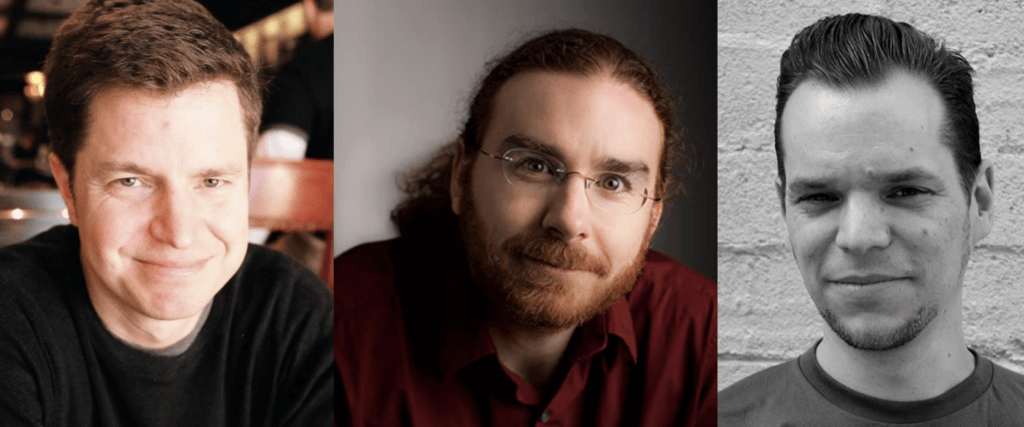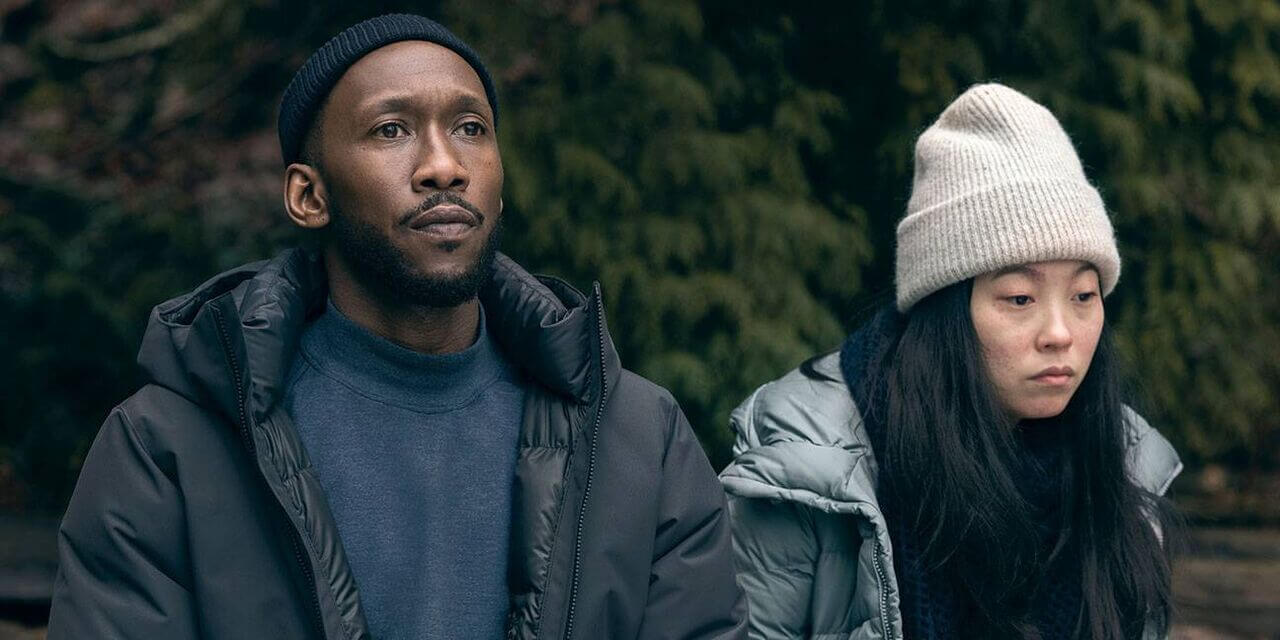In this episode we are joined by Bernard Gariépy Strobl (re-recording Mixer) David McCallum (supervising sound editor) & Steve Fanagan (sound designer/supervising sound editor) of the new sci-fi film “Swan Song”. They tell us about how they came together as a team when none had ever met before this film. They also talk about the challenge of designing UI sounds for the near future and the unique schedule for the film’s post production.

Links:
Bernard Gariépy Strobl on IMDB
Steve’s previous appearance on Tonebenders talking about Normal People
Bernard’s previous appearance on Tonebenders talking about Arrival
__________________________
The Following is a lightly edited and repaired, A.I. generated transcript of Tonebenders episode 187 – Swan Song. Please excuse any typos or translation mistakes made by the algorithm .
Tim Muirhead/Host
Bernard Gariépy Strobl / Re-recording Mixer
David McCallum / Supervising Sound Editor
Steve Fanagan / Sound Designer/Supervising Sound Editor)
__________________________
Narrator 0:19
You’re listening to Tonebenders, the sound designers podcast. Let’s do this.
Timothy Muirhead 0:30
Hello and welcome Tonebenders. My name is Timothy Muirhead and I will be your host for today. In the canon of film history, from Fritz Lang’s Metropolis to Ridley Scott’s Blade Runner to Spielberg’s Ready Player One, the future of our planet has been fertile ground for filmmakers. In most cases, our future is in shambles. We’ve screwed everything up. The film that we’re going to talk about today though, shows a not too distant future where things appear to be going just fine. Swan Song stars Mahershala, Ali, and is directed by Benjamin Cleary, and it goes down the road of our future selves messing around with human DNA in a very personal way. We focus on one man and his family as he struggles to decide what is the best way he can look after them after getting terrible news. To talk to us about the film today we have the film’s re-recording mixer Bernard Gariépy Strobl. Regular listeners of Tonebenders will remember his previous appearance in Episode 83, where he talked about his amazing Oscar-nominated work on arrival, which is one of our most popular episodes ever. So it’s really great to have you back, Bernard. Welcome. It’s good to see you again.
Bernard Gariépy Strobl 1:31
Nice to see you too.
Timothy Muirhead 1:32
Also joining us, we have one of Swan Song’s two Supervising Sound Editors, David McCallum. David is a BAFTA Award winner and multiple Emmy nominee. You’ll be familiar with his work on A Handmaid’s Tale, Molly’s Game, and lots more. I’m glad to see you, David. Thanks for joining us.
David McCallum 1:46
Thank you for having me.
Timothy Muirhead 1:47
And finally, we have Steve Fanagan joining us, the other Supervising Sound Editor and Sound Designer on Swan Song. Steve was on Tonebenders in Episode 142 to talk about his work on the series Normal People. It’s a joy to speak with him again. How are you doing today, Steve?
Steve Fanagan 2:01
Very well. Thank you, Tim. Thank you for having us.
Timothy Muirhead 2:03
Excellent. So, Steve, you’re based in Ireland? Bernard, you’re in Montreal. David, you’re in Toronto. None of you seem to have ever worked with the director of this film before. What’s the connection here? How did you all come together? David, do you want to start us off with that?
David McCallum 2:20
We came together because Ben picked us. We were individually selected. We all interviewed with Ben independently. We didn’t have any influence over each other’s hirings. And we’d never met before. So I certainly knew of Bernard, being familiar with his work in Canada, and and his international mixing work for sure. I had not met Steve and Steve had not met me. But Ben crafted a crew of individuals. And he had a particular agenda about what he was looking for. He knew we wanted a sound designer and was happy to search the world to find his sound designer. And at the time, Steve was located in London. He was interested in me because he knew even though I was a supervising sound editor that my focus was on dialogue. And he liked the idea of a supervisor that was focused in one department because he wanted a sound designer in the other department. I think he found his way to Bernard after looking at many, many mixers that were located anywhere in the world; he didn’t have a geographical concept of where people needed to be from, or what they needed to have done. He leaned more towards, not experimental, but abstract narrative or independent films. And I think he really was drawn to Bernard’s resume where he had mixed both high quality Hollywood films, but also a lot of independent, unique, very creative films. So he kind of put us together, and we had to find our way from there.
Click on Page 2 below, to read the rest of the transcription of this episode.
Pages: 1 2
